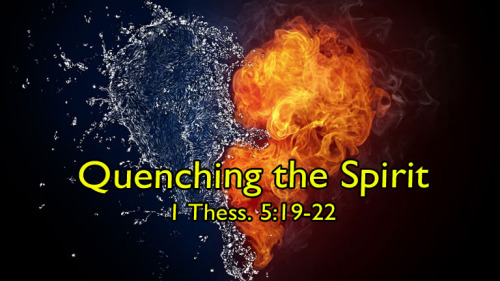
A Christian Witness to the Whole World

We are involved in something that will still be worthwhile a million years from now because God has not revoked the great commission.
Today the kingdom of God is realized as we proclaim the crucified, risen, and returning Lord Jesus Christ.
The gospel is the good news of the kingdom of God that has come in the person and work of Jesus Christ. How do we enter into the kingdom of God? There is only one way. “Repent of your sins and believe on Jesus Christ.” That is the message we preach.
John Ryle once said, “Men are apt to forget that it does not require great open sins to be sinned in order to ruin a soul forever. They have only to give hearing without believing, listening without repenting, going to church without going to Christ, and by and by they will find themselves in hell.”
Every time we share that message we are personally involved in what God is doing in building His eternal kingdom.
We can expect God’s power and sustaining grace to meet all of our necessities as we take the good news to a lost world. Jesus said, “When they deliver you up, do not become anxious about how or what you will speak; for it shall be given you in that hour what you are to speak” (v. 19). Those are instructions for martyrs and Christians under persecution, not preachers getting ready for Sunday morning without doing their homework. The Holy Spirit gives boldness to testify under all circumstances for Christ. “For it is not you who speak, but it is the Spirit of your Father who speaks in you” (v. 20). Success in personal witnessing is simply sharing Jesus Christ in the power of the Holy Spirit and then leaving the results up to God.
The Lord is sovereign in His kingdom (vv. 30-33). There is nothing that can happen to His faithful servant who is not fully known to Him. Whatever we experience as His servants is fully known to Him and happens ultimately for our good and His eternal glory. The responsibilities are great for all believers (vv. 34-39).
However, the rewards of being faithful to the Lord Jesus Christ are eternal (vv. 40-42). “He who receives you receives Me, and he who receives Me receives Him who sent Me. . . . And whoever in the name of a disciple gives to one of these little ones even a cup of cold water to drink, truly I say to you he shall not lose his reward” (vv. 40, 42).

Blessings out of Sufferings

What is your response to suffering? There is no escape from intense pressures in this life, but it helps when we get God into the picture.
“After you have suffered for a little,” says Peter. The suffering is temporary, in contrast and comparison to the eternal glory that is in store for the believer.
Before God blesses us there come times of trouble, distress, grief and pain. We can rejoice knowing the suffering is for a short time, but out of the suffering comes blessings that cannot be had any other way.
God equips believers for His service through suffering. He strengthens character in the fires of pressure.
“After you have suffered for a little while,” indicates the blessings come only after we submit to the refiner’s fire. We cannot disregard the sufferings.
Who will bless us? “The God of all grace, who called you to His eternal glory in Christ . . .” He is faithful and consistent in the way He treats us. He is the “God of all grace.” Everything He does will be consistent with His eternal glory. Whatever He begins in His grace will lead to His glory. What He begins He will see through to completion. One day He will say, “Come to Me you blood-bought sinners. Come unto My eternal glory.”
We have been called, not just to eternal glory, but God “called you to His eternal glory in Christ.” He called you and me, sinners saved by His manifold grace, to His eternal glory. He called us to that very glory and honor in which the LORD God invests Himself forever. Yes, we who have “sinned and come short of the glory of God” are called into His holy presence dressed in His robes of righteousness.
The promise is “in Christ,” and to His glory. Everything comes through Christ. He is the atmosphere or climate of the whole Christian life.
He is the God of all grace—quickening grace, pardoning grace, cleansing grace, believing grace, sustaining grace, sovereign grace. The God of all grace, manifold grace, has a storehouse that never runs out. It is infinite, boundless, limitless, amazing grace.
Out of that constant supply of saving and sanctifying grace God does a marvelous work in us. His goal is to “perfect” us. The word for “perfect” in the original means to equip, to adjust, and to fit together, “to put into order, to mend, to make whole.” It is also used for mending of torn fishing nets, and the “setting a broken bone.” Everything that happens in our Christian life is used to conform us to Christ. Whatever God has begun He will complete in the day of Christ. God will make us just like Christ. Shall God fail in His eternal purpose? Never. And He will not in your life or mine.
You cannot be perfected except by the refiner’s fire. God uses the rod to chastise His children. Nothing but the rod will remove the foolishness in our lives. The Holy Spirit uses these fires to remove every corruption within. How is God restoring your broken nets, and setting your brokenness?
God uses stress to set up, fix firmly, to establish and strengthen the believer. “Confirm,” or “establishment” is to make solid like granite. God tempers us in the hot fires of suffering. Sufferings make us steadfast. It secures and stabilizes us and makes us mature believers. Suffering has a way of focusing our eyes on Christ, and off of ourselves. Pressures in our lives force us to rest upon the Rock of Ages. Our hope is fixed upon His blood and His righteousness. We cannot be established on the solid foundation without suffering.
Peter also prays that the suffering will produce a solid foundation for spiritual growth. Suffering also strengthens us spiritually. We gain new strength by wrapping ourselves around the Lord. He gives us strength to bear up under incredible suffering. When we depend upon God’s grace our suffering will glorify God. The Christian learns to face life with the sense that God is all he really need. Watch the Christian who has God with him.
Moreover, God strengthens His people as they undergo suffering. He gives us grace and power in time of need. As we submit to Him, He gives us the grace we need for the moment.

Prayer

How do you pray in the midst of bad times? How do you approach God when everything seems to you to be going from bad to worse? What is your attitude when God answers, but not in the manner in which you asked? What is your response when to your perspective God contradicts His own righteousness?
Welcome to Habakkuk, the Hebrew prophet in the seventh century B.C. God taught him how to trust Him when everything is filled with confusion and perplexities. Where is God? What is He doing? Why doesn’t He do something now? Habakkuk sounds like us when life begins to unravel and fall apart.
Habakkuk teaches us how to pray and trust the LORD God when we don’t have the answers. Let’s center our thoughts around a phrase P.R.A.Y.E.R.
P – pursue God.
R – examine self and confess sin.
The only way we dare approach God is in humility and a plea that He be merciful to us. We need to ask God to do a new work in us. In Your wrath please remember us with mercy.
A – ffirmation of what God is doing.
The God of history was busy at work. “For behold, I am raising up the Chaldeans” (v. 6). Babylonians! Yes. Things are not always as they appear to us. There is no power in the world that is not ultimately controlled by Him. Every nation of the earth is under the hand of a sovereign God. God is over all – even the evil Babylonians! The events of history are not random accidents; they follow God’s eternal plan (cf. 3:3-15). The LORD God is the Lord of history. He is in control of history, and He will continue to accomplish His eternal purpose of redemption for His people.
Y – ield yourself to the LORD God. Habakkuk did not like what he heard God reveal. “Your eyes are too pure to approve evil, And You can not look on wickedness with favor. Why do You look with favor On those who deal treacherously? Why are You silent when the wicked swallow up those more righteous than they?” (Habakkuk 1:13, NASB 1995
This is where the prophet grew in His knowledge of God and understanding of His ways with men. What is God teaching me that needs to be corrected? Let us learn to judge everything in the light of His eternal purpose. “The righteous will live by his faith” (2:4). God is still the eternal God, and nothing catches Him by surprise. Nothing can separate us from His love. It is in those moments we must reaffirm that conviction and yield to His sovereignty.
E – xpect God to answer according to His will. “For the earth will be filled with the knowledge of the glory of the Lord, as the waters cover the sea” (Habakkuk 2:14, NASB 1995
In time God will answer according to His eternal purposes. God controls history. The Babylonians did not rise up on their own. God raised them up to accomplish His purposes in the history of Israel. They were the tool in God’s hand for correction and purification of His people. Look for God’s answer in His Word. God will answer your prayers, and you will be able to stand back in awe and say, “I saw God do it.”
R – ejoice and give thanks to God. Habakkuk closes with a doxology. “Yet I will exult in the Lord, I will rejoice in the God of my salvation. The Lord God is my strength, and He has made my feet like hinds’ feet, and makes me walk on my high places. For the choir director, on my stringed instruments” (Habakkuk 3:18-19, NASB 1995).

Anxiety

“‘God opposes the proud but shows favor to the humble.’ Submit yourselves, then, to God. Resist the devil, and he will flee from you. Come near to God and he will come near to you. Wash your hands, you sinners, and purify your hearts, you double-minded. Grieve, mourn and wail. Change your laughter to mourning and your joy to gloom. Humble yourselves before the Lord, and he will lift you up” (James 4:6b-10).
Do you think you deserve that promotion because of how awesome you are? That’s pride. Do you think something bad is going to happen despite God’s promise to take care of you no matter what? That’s pride, too. Thinking our understanding of a situation is clearer than God’s, that we have all the information, is prideful. Peter and James encourage us to focus instead on God’s truth and faithfulness, then act accordingly.
When we’re anxious, we’re forgetting God’s power and position. God’s sovereignty trumps everything. He knows what will happen to you. Your circumstances are not outside His purpose. Romans 8:28 promises that what the enemy means for evil in your life, God will use for good. Depend on Him. Rely on Him. Hang on His every word. He will never leave you or forsake you.
There is no room for anxiety and fear. If we believe in Jesus, our pride and unbelief and all our sin was nailed to the cross with Him. Jesus triumphed over the sin that so easily entangles to set us free. To give us victory. Focus on His finished work. Not on what could happen or what people might think. None of that matters. Humble yourself before the Lord that He may lift you up.

Quenching the Spirit

Do not quench the Spirit. Do not treat prophecies with contempt but test them all; hold on to what is good, reject every kind of evil. I Thessalonians 5:19-22
Picture a warm fire and imagine its glow and its radiating heat bringing all around calm and comfort. If you see that picture you are getting the experience that the Holy Spirit wants to bring to you and others through you. Now go back to that fire and imagine some dude douses your fire with a five gallon bucket of water. What feelings would that bring up in you, what would you say, what would you do?
When we look at this scripture passage and surrounding verses carefully we see three ways in which the fire of God is stoked or extinguished in our life. The fire stokers would include all expressions of worship, talking to God in all matters and in all moments of life, and an attitude of gratitude. These act like a highly flammable spiritual accelerant with your journey with God, the Holy Spirit will prompt you to practice all three as a way of life to help to keep his fire burning hot.

Looking for A Spiritual Breakthrough

Our Breakthroughs Are Opposed by Powerful Forces
This is as true for spiritual warfare as it is for terrestrial warfare. In the spiritual realm, as opposed to the terrestrial, the church is an invading force. Though we can easily slip into a defensive, circle-the-wagons mindset, Jesus clearly intends for us to be aggressors, not merely defenders. The Great Commission is to “go and make disciples of all nations” (Matthew 28:19). In a world that “lies in the power of the evil one” (1 John 5:19), that’s militant language. Our mission: to liberate those the devil has taken captive to do his will (2 Timothy 2:26).
But we must keep in mind that strategic ground is not yielded easily. Whether we’re battling for breakthroughs against our own stubborn sin or the unbelief of a loved one or breakthroughs in the missional advance of our local church, reaching unreached peoples, rescuing persecuted believers, orphans, sex slaves, or the unborn, we are up against “spiritual forces of evil in the heavenly places” (Ephesians 6:12). We don’t know exactly what that means, except that these forces are very strong.
Daniel’s Example
Daniel 10:12–14 gives us a brief glimpse of what’s happening. Daniel had been praying and partially fasting for 21 days to gain greater insight into the revelations he had received (Daniel 10:3) when an angelic being finally showed up with an answer to his prayers. This messenger said that he had been trying to get to Daniel for those 21 days, but had been detained by “the prince of the kingdom of Persia.” The chief angel Michael had to come and free him.
When God Moves, Satan Responds
The consistent pattern throughout the Bible is that every significant move of God is preceded by a season of increasingly difficult, discouraging opposition. And if we take Ephesians 6, Daniel 10, and other warfare texts seriously, we can understand why: God is invading what Satan considers his territory. God’s kingdom is breaking through the lines of the domain of darkness (Colossians 1:13).
If we are not encountering opposition, it’s likely we are not attacking a strategic location. But if we are, we are on to something. Where the enemy is fortifying his forces is where we must focus our assault.
A Call for Breakthrough Determination
So this is a call for holy determination. Keep praying and don’t lose heart (Luke 18:1). Just like in any large-scale war, there are many battles. Some breakthroughs are achieved relatively quickly; others require long, persevering endurance. But either way, breakthroughs require a determination to keep up the assault.
Don’t Be Selfish
How can we not be selfish? That’s difficult when the overwhelming majority of our thoughts are about ourselves. The second half of this verse has the answer. When we think of others more often than ourselves we battle with our selfishness. It’s not asking us to think badly of ourselves, but instead to think higher of others. This can mean we give others the benefit of the doubt, release our grudges, and pay attention to the thoughtfulness others extend to us. Work today towards thinking of others more.

All That Jesus Continues To Do

“All that Jesus began to do and teach” He continues to do and teach today.
In Acts 1:1 the words “all that Jesus began to do and teach” are in the linear action. It is action still going on. The verb “began” is present infinitive, linear action. It is as if to say that Jesus is still carrying on from heaven the work and teachings which He started while on earth before His ascension.
Luke does not say “all that Jesus did and taught,” but “all that Jesus began to do and to teach.” The Gospel of Luke tells us what Jesus began to do and teach, while Acts of the Apostles tells what He continues to do and teach by His Spirit through His special Body.
In Volume 1 of the Life and Acts of Jesus Christ, Dr. Luke tells the story of the beginnings of what Jesus began to do and teach. In his Gospel, Luke gave “the first account I composed, Theophilis, about all that Jesus began to do and teach.” What was it Jesus began to do and teach?
In Luke 4:16-21 Jesus stood in the synagogue at Nazareth and read Himself into His divine office. “The Spirit of the Lord is upon Me, because He anointed Me to preach the gospel to the poor. He has sent Me to proclaim release to the captives, and recovery of sight to the blind, to set free those who are oppressed, to proclaim the favorable year of the Lord.” Then Jesus closed the scroll, gave it back to the attendant, sat down, and with the eyes of all the synagogue fixed upon Him said to them, “Today this Scripture has been fulfilled in your hearing” (vv. 20-21).
Those verses tell us what Jesus began to do leading up to His atoning death for our sins on the cross. What Jesus taught is summarized beautifully in Luke 24:25-27 as He reminded the two disciples on the road to Emmaus. “‘Was it not necessary for the Christ to suffer these things and to enter into His glory?’ Then beginning with Moses and with all the prophets, He explained to them the things concerning Himself in all the Scriptures.”
In the opening words of his second volume, Acts of the Apostles, Luke tell us what Jesus is still carrying on from heaven. He is still working and teaching, doing the same thing He started while on earth before His ascension. In volume two Luke tells us all that Jesus continues to do and teach after His ascension through His present spiritual Body here on the earth (2 Cor. 5:14-15, 18, 21).
What does Jesus continue both to do and teach through His present body on the earth?
Every born again believer is a member of the special Body with specific spiritual gifts that are needed by His Body. God places every member in a local church to accomplish His redemptive purposes through that church. He saved you by grace and put you in a local Bible believing church to accomplish His will on this earth (Eph. 1:22-23; 4:11-13; 1 Cor. 12:12ff, 27; Rom. 12:5, 6).
You were given at least one spiritual gift for a purpose when God saved you. If you are not exercising your gift not only do you fail to fulfill your mission, but also the Body of Christ does not function to its fullest potential.
The Body of Christ has authority to continue to do and see to completion all that Jesus began to do and teach (Matt. 28:18-20; Acts 1:8). The risen Lord is the head of the church. He is continuing to do in and through you and me all that He began to do and teach. He has given us all the authority and power we need to accomplish His will. We are a specially equipped Body with power and authority to continue to do what Jesus began to do and teach. Will you say to Him, “Lord, whatever You direct me to do in relation to your Body, I will do. I am your servant for your purposes.”
When God gives you a divine assignment to accomplish His will, and purpose, you must depend upon Him alone to accomplish it. Why? Because it is His work, not yours. Since it is a God-sized task you must depend on God alone. Who is continuing to work? Christ does no ask you to do His work in your abilities, gifts, likes and dislikes. We must be totally available to Him and depend upon Him to do His work.
What chapter are you writing in Volume 2017 of the Life and Acts of Jesus Christ? Where is God at work in your life? What is He doing and teaching through you to accomplish His eternal purposes?

Are You One of the Elect of God?

Jesus said, “All that the Father gives me shall come to Me; and the one who comes to Me I will certainly not cast out” (John 6:37).
The answer to the question, are you one of the elect of God, is answered by another question: Have you believed on Jesus Christ as your personal Savior? If you have responded to His free grace, and have believed on Him alone for salvation, you should know that you are one who was given to Jesus before the foundation of the world.
When Jesus was praying to the Father the night before His sacrificial death on the cross He said, “Father, the hour has come; glorify Thy Son, that the Son may glorify Thee, even as Thou gavest Him authority over all mankind, that to all whom Thou hast given Him, He may give eternal life” (John 17:1-2).
Jesus is referring to the covenant between God the Father and God the Son when God gave to Jesus in salvation that great company for whom He would go to the cross and die.
His death provided the objective and judicial basis whereby the elect would be saved.
The prophet Isaiah spoke of that day in his poem of the Suffering Servant. “But the LORD was pleased to crush Him, putting Him to grief; if He would render Himself as a guilt offering, He will see His offspring, He will prolong His days, and the good pleasure of the LORD will prosper in His hand. As a result of the anguish of His soul, He will see it and be satisfied; by His knowledge the Righteous One, My Servant, will justify the many, as He will bear their iniquities” (Isa. 53:10-11).
Jesus went to the cross the next day knowing that His death would secure the salvation of all whom God had given Him (Jn. 17:2, 6, 8, 11, 12). He had the satisfaction that night of knowing that His substitutionary death would secure our salvation.
Jesus, as our Sovereign Savior, has authority over all mankind to give salvation to all whom God has given Him. Thank God, because we were dead in our trespasses and sins and unable to come to Christ unless He first gives eternal life to us (Eph. 2:1-5). If the Holy Spirit is pleading with you, please respond to Him now and receive God’s free gift of eternal life. This is the very evidence you are longing for because of His dealings with you. He raises the spiritually dead and gives life.
It is a fearful thing to fall into the hands of the living God. He did not have to save anyone. It is His sovereign grace that reaches down to us and draws us to Himself. Will you not respond to His pleading even now? He has the authority and power to break our rebellious will, and quicken our dead spirit so that we will respond to Him in faith.
Jesus Christ gives eternal life to everyone the Father has given Him. He is just in following His eternal plan of redemption whether you and I agree or not. He is the Sovereign King. He shows mercy to whom He will. God is showing mercy to you now. Will you respond to His pleas?
“But as many as received Him, to them He gave the right to become children of God, even to those who believe in His name, who were born not of blood, nor of the will of the flesh, nor of the will of man, but of God” (John 1:12-13).
How do you know you are one of the elect of God? Have you believed on Jesus?

Secure Shelter in the Storms of Life

“He who dwells in the shelter of the Most High will abide in the shadow of the Almighty” (Psalm 91:1).
The Psalmist invites us to abide in the Father’s shadow where we see only the face of the Almighty. The veil of the temple was torn in two making it possible for every believer to go into the presence of the LORD God anytime he desires. In deed, as the Psalmist said we can abide in His presence all the time.
The “shelter of the Almighty” implies His holy presence. In the “shadow of the Almighty” we find strength to live a holy life.
Has the Most High become your dwelling presence? The believer finds refuge and a secure place in the strong fortress of Yahweh. The LORD is “My refuge and my fortress, My God in whom I trust” (v. 2). Whoever trusts in the Most High finds security and protection in God’s holy presence.
Elyônsuggests the exaltedness and overwhelming majesty of God, signifying the supremacy of the deity. This divine name reflects the ideas of omnipotence (Ps 18:13; Lam. 3:38), universality (Ps 83:18), and constancy (Ps 21:7). He is the place of protection and shelter for Israel (Ps 9:2; 91:1, 9), and for her king (Ps 21:7). Elyôn
El Shaddai saying, “I am the Almighty God. Obey Me and always do what is right” (Genesis 17:1). The Almighty is all-powerful. As El Shaddai
In addition, the images “shelter” and “the shadow” suggest a secure hiding place from the storms of life. We have a secure refuge in His hiding place. We have safety in the presence of the LORD.
How often we ago looking for security and safety in that which offers only a false security. The LORD God removes our false securities one by one until we trust in Him alone.
Is He your hiding place? Have you learned how to find refuge in trusting in the abiding presence of the most powerful God?
The all-powerful God is our eternal refuge. The Almighty God is our protection.
The “secure place” is in the presence of the Most Holy One in the Most Holy Place, and it is where He covers us with His “wings.” There He guards us and gives us victory over the enemy, answers our prayers, and strengthens us and satisfies our hearts.
The Psalmist in 27:5 said, “In times of trouble He will shelter me; He will keep me safe in His Temple and make me secure on a high rock.” In 32:7, David testified, “You are my hiding place; You will save me from trouble; You do surround me with songs of deliverance.” As we claim the promises in God’s Word we can also declare, “You are my defender and protector; I put my hope in your promise” (19:14). He is our refuge and shelter in a secure hiding place.
Have you learned to hide as a baby chicken does under the mother hen’s wing? The LORD “will cover you with His wings, you will be safe in His care; His faithfulness will protect and defend you” (91:4).
Have you learned to trust in God’s great providence for the believer? It will be amazing in heaven when the Lord pulls us aside and says, “You remember when . . . . I was there. I protected and watched over you during those events.” He is our refuge in time of trouble. He is our refuge, fortress and security.
“He who dwells in the secret place of the Most High shall abide under the shadow of the Almighty” (KJV).
Have you learned how to abide in the secret place of the Almighty? He teaches us in secret how to abide. The highest privilege we have as Christians is to commune with God. Walking with God is the source of our strength. The intimate walk with Christ involves pulling down every proud obstacle that raises up against the knowledge of God. In our thought life, “we take every thought captive and make it obey Christ” (2 Corinthians 10:5).
The difference between success and failure in the Christian life and service is going into God’s secret place and then coming out from His presence to serve. Jesus set the example for the servants when He spent the whole night in prayer before He called His disciples (Luke 6:12-13).
The shadow of the Almighty is over the saint who dwells in the secret place of the Most High. Encourage your faith in the omnipotence of God. Since God is for you who can possibly be against you? God has the answer for our needs. Insignificant means are sufficient for Him. “The LORD will provide” has been the testimony of faithful believers down through history.
